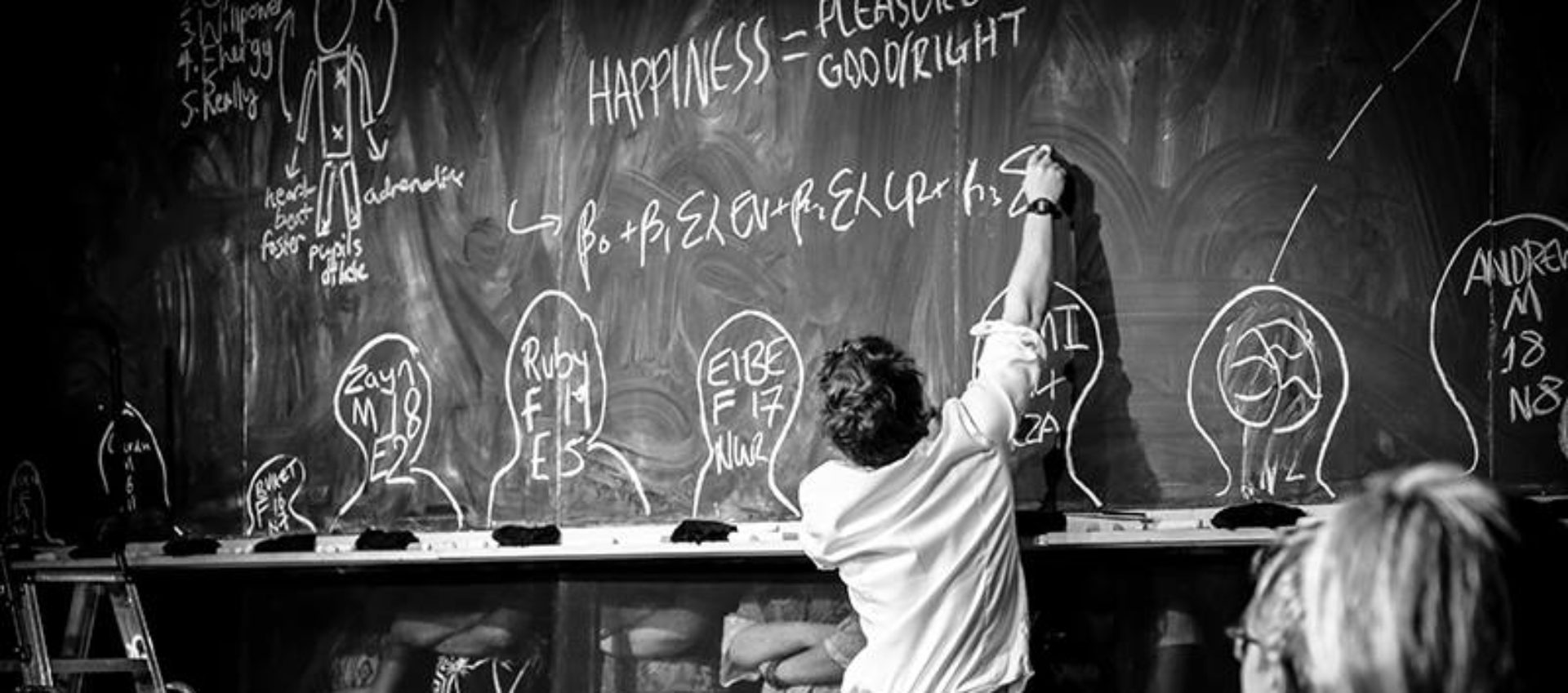I’ve just finished a two week run at the Camden Roundhouse performing a play called The Happiness Project. This is a project I’ve been involved in for just over two years, which began as a low-key attempt to explore why a UNICEF report found British children to be very unhappy relative to children in similar countries , and blew up into a show involving 12 young adults and 6 academics performed at the Edinburgh festival and enjoying a sellout run in London to very complimentary reviews.

The play follows one girl’s attempts to figure out what it means when her mother tells her ‘I don’t mind what you do with your life, as long as you’re happy’. A variety of her contemporaries chip in, hoping to explain by demonstration – happiness is new shoes, a new Adele single, drumming. Then some upstart academics try and help too, with mixed success. I talk about the role of expectations and rewards in happiness, riffing off my colleague Jacob’s anticipation of bacony bliss. We tackle the role of music, memory, aspiration, and ‘flow’ in happiness, and there’s also some terrific drumming.
If you’re a scientist, I can’t recommend more highly that you seize any opportunities to work with creatives and/or young people. It’s tremendously challenging – it turns out scientists quite like precise plans, predictability, and control, luxuries not always available in the world of devised theatre- but, for me at least, it’s been unbelievably rewarding. It was a useful reminder that many of the problems we work on as cognitive scientists are hugely interesting to people in the outside world – but that sometimes we focus on bits of those questions which are not that interesting to everybody else, or we make assumptions that the public find hard to stomach. But the best part was simply becoming part of a group of people of a huge variety of ages (from 13 to 67), from a variety of walks of life, learning about their dreams and their struggles, and watching them grow into a formidable theatre company.
The project was jointly funded by a creative-scientific powerhouse pairing of The Roundhouse and the Wellcome Trust, directed by Emma Higham and Tashi Gore with dramaturgy (shaping of the drama bits) from Jess Thorpe and scienturgy (you guessed it- shaping of the science bits) from my colleague Robb Rutledge.

